ICCAN calls on UK government to prioritise aviation noise post-COVID-19
- Like
- Digg
- Del
- Tumblr
- VKontakte
- Buffer
- Love This
- Odnoklassniki
- Meneame
- Blogger
- Amazon
- Yahoo Mail
- Gmail
- AOL
- Newsvine
- HackerNews
- Evernote
- MySpace
- Mail.ru
- Viadeo
- Line
- Comments
- Yummly
- SMS
- Viber
- Telegram
- Subscribe
- Skype
- Facebook Messenger
- Kakao
- LiveJournal
- Yammer
- Edgar
- Fintel
- Mix
- Instapaper
- Copy Link
Posted: 21 May 2020 | International Airport Review | 5 comments
As aviation experiences an all-time low, ICCAN has proposed to use the unique opportunity to address aviation noise once services begin to increase post COVID-19.
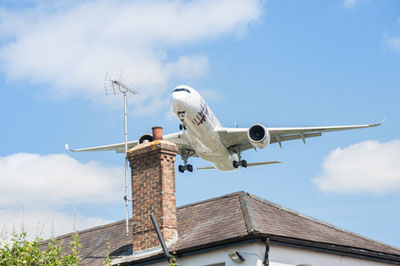

The UK’s Independent Commission on Civil Aviation Noise (ICCAN) has called on the UK government to make managing aviation noise a key priority in a post-COVID-19 environment, when aviation levels begin to recover and start to increase following the drastic decline in services as a result of the pandemic.
In a letter to Grant Shapps and Kelly Tolhurst – the UK’s Transport Secretary and Aviation Minister, respectively – ICCAN’s Head Commissioner, Rob Light, argued that the unprecedented situation the industry is currently experiencing should be seen as a chance to rebuild and regrow aviation in a more sustainable way.
Light said: “The decisions taken when rebuilding cannot be at any cost and this applies to the detrimental effects of noise on the public, as much as it does to climate change concerns.”
ICCAN believes that there must be a clear, consistent and transparent approach to noise mitigation and, as a result, the current ways of working must change. The advisory body is currently collecting and analysing data on aircraft movements, noise monitoring and attitudes around airports, as the drastic fall in aviation activity due to the COVID-19 pandemic is a unique opportunity to use data to understand the impact as such historic low levels of activity begin to increase.
Some communities living close to airports may currently be experiencing a period of respite due to quieter skies, but one of the expected consequences when aviation activity levels increase is that the noise will be more noticeable. Given the particular health impacts of noise on those communities, ICCAN believes that it is vital that noise management and mitigation is properly considered as activity levels begin to pick up.
In the letter, Light wrote: “When the Independent Commission on Civil Aviation Noise (ICCAN) published our first Corporate Strategy in the spring of 2019, we could scarcely have imagined the events to come and the impact COVID-19 would have on the aviation industry. I feel a great deal of empathy for the many thousands of people employed in the aviation industry and the uncertainty that lies ahead.”
The letter continued: “We see current events – and I write this with utmost sensitivity – as an opportunity for a re-think about the way aviation noise is considered when both strategic and operational decisions are taken about the future of aviation. In the understandable desire to rebuild aviation swiftly and efficiently, not being seen to prioritise aviation noise management is likely to generate a significant negative reaction from local communities. The public will need to trust that the rebuilding of the aviation industry – at whatever pace – is done in a sustainable way.”
Related topics
Related organisations
Independent Commission on Civil Aviation Noise (ICCAN), UK Government



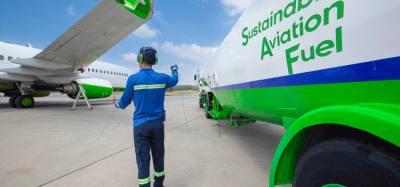
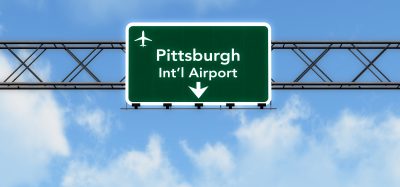
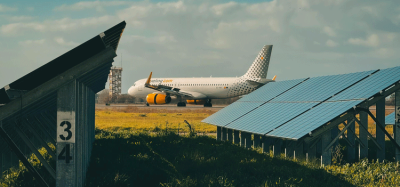
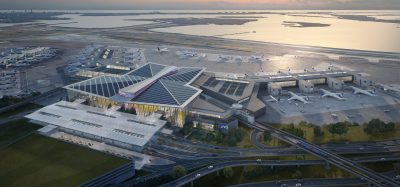











Absolutely agree with the comments made by ICCAN – also picked up in the article “We can’t go back to our old noisy world” in the Times on 21 May, which noted that even the British Geological survey seismometers had registered the reduction in vibrations due to a significant drop-off in transport noise in general, and reiterated the negative health impacts of long-term exposure to noise.
Airspace modernisation – the project to cram even more flights into the already overcrowded skies – adopts a fig-leaf by claiming that GPS-based navigation can be used to reduce the impact of aviation noise. But where airports are surrounded by communities, perhaps in close proximity, what the new PBN-based concentrated routes essentially offer is “fly all the planes in a tight swathe over A so that B is not affected”. Beautiful diagrams of tracks weaving their way between housing conveniently ignore the sideways radiation of noise – from any position where the planes are at an elevation of around 60 degrees or more, the noise is virtually the same.
The best way to minimise the impact of aviation noise on people on the ground, is to locate airports well away from places where people live, work or study. Sadly in the UK this proves almost impossible. Where there are already established communities, all that is currently being done is to focus on concentration or even concentrated dispersal, spreading the noise differently, rather than minimising and reducing it. And if slightly quieter aircraft are introduced, then ‘noise quotas’ or similar planning controls permit more of them to be deployed so that the total noise budget remains the same.
Rob Light’s sensitive conclusion in his letter is much welcomed – noise reduction does need to be on the agenda as the future of aviation is considered. But significant technological advance in quieter engine technology and quieter airframes is unlikely short term, so the long and the short of it may be that if people dislike the noise and the other unsustainable aspects of aviation, the only recourse may be to decide to fly less.
It is very welcome that there is a commission that is actually beginning to understand the difference between aviation-centric soundbites and the reality on the ground. It’s all to easy for the industry to claim benefits on the ground by shrinking noise contours, but what they don’t mention is to achieve this results in the repetitive hammering of some that find themselves underneath a PBN-inspired routing, making their lives intolerable. All aviation blight is outside UK law – in the interest of developing civil aviation, Winston Churchill removed the citizen’s right under UK law to sue for nuisance in the 1920’s, which remains today. This may be seen as ‘progress’ by those in the industry, but the downsides for those who suffer the catastrophic consequences of such unbridled expansion has life-limiting and life-altering consequences, not to forget climate change
This says it all – we must not go back to our old polluting ways. This is a time to Pause for thought!
Excellent letter from ICCAN. It would be a serious mistake for the post-coronavirus aviation industry to be built on the same foundations as the pre-coronavirus industry. The industry of the future must think, behave and be regulated very differently from the one that has failed so comprehensively in 2019/20 with far-reaching consequences for impacted communities and the country as a whole.
Correct, Bob! As a lot of people have now realised, the last thing that most people need or the planet needs is to “get back to normal” after the pandemic.